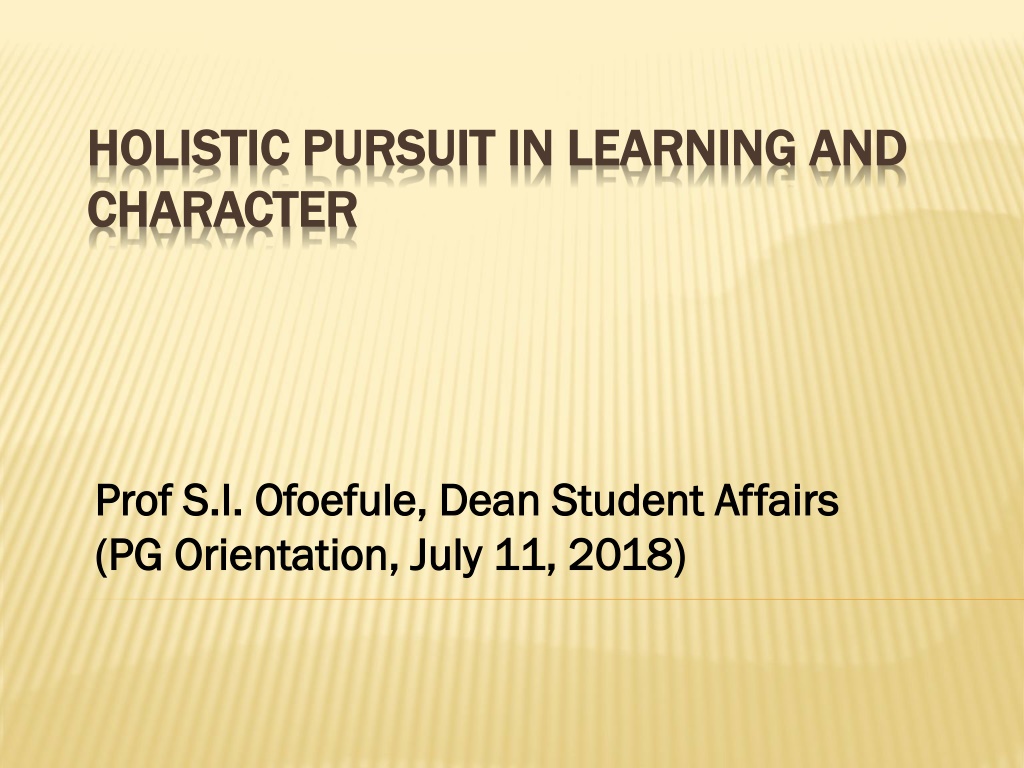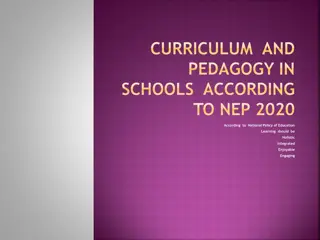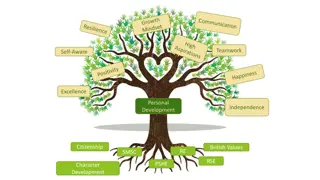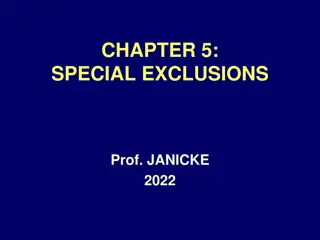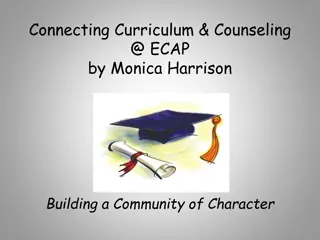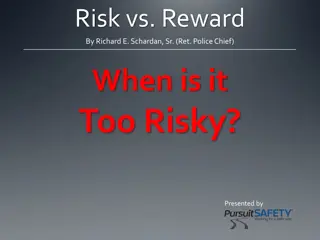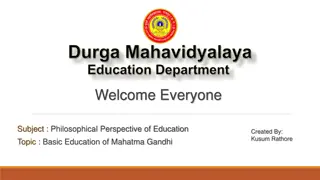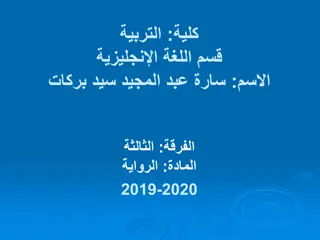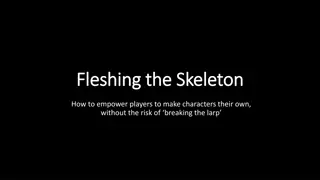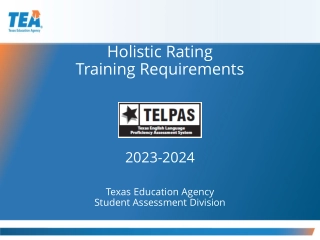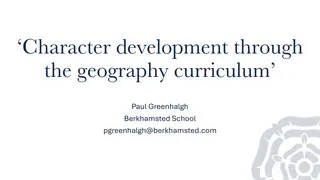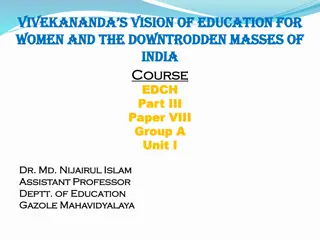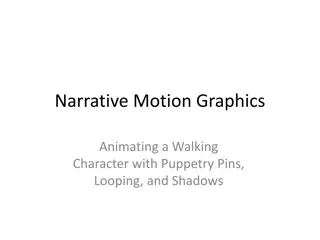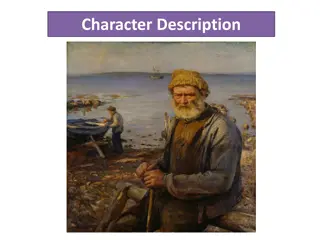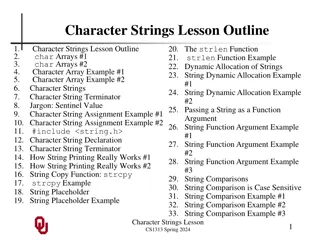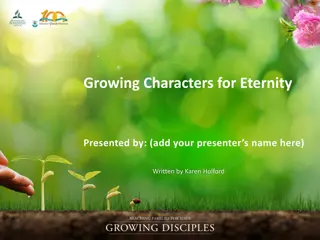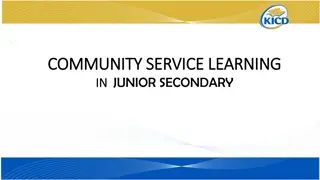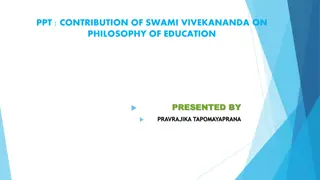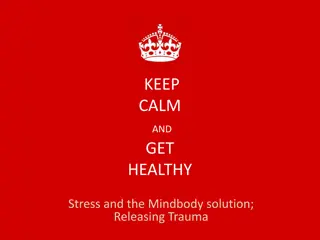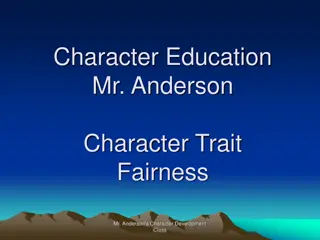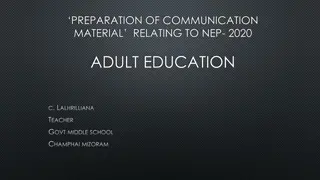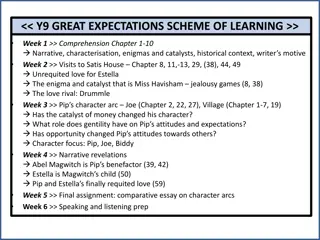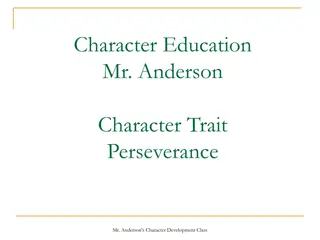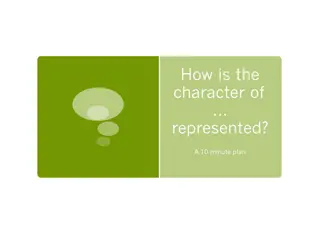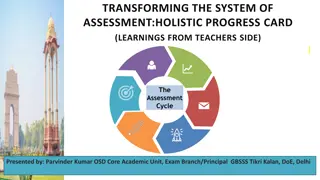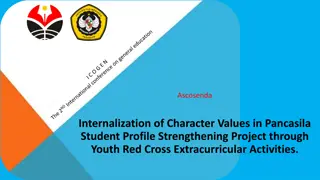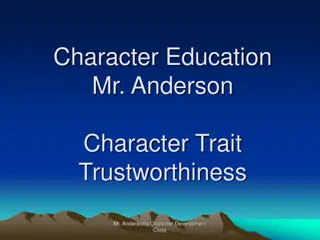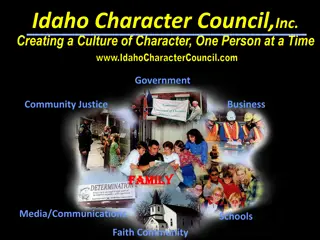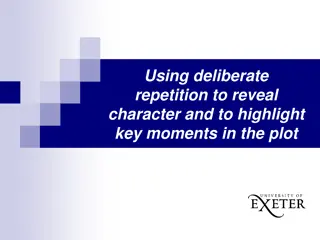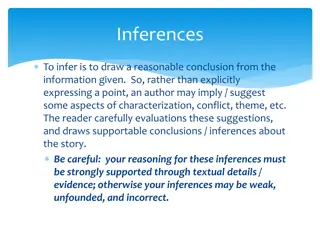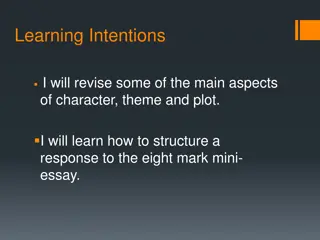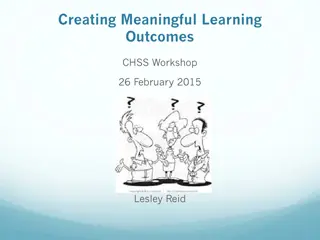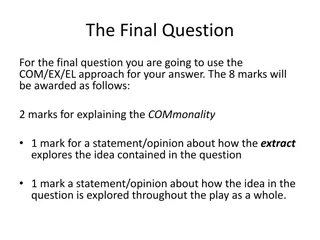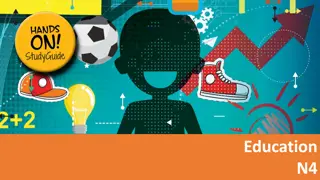Holistic Pursuit in Learning and Character Development in Education
Holistic education focuses on nurturing the whole individual, promoting values like compassion and peace, and fostering a love for learning. It emphasizes experiential learning, human relationships, and core moral values in the educational environment. Addressing challenges in modern culture, holistic education strives to develop students into useful citizens by instilling lifelong learning, critical thinking, ethical behavior, and social responsibility.
Download Presentation

Please find below an Image/Link to download the presentation.
The content on the website is provided AS IS for your information and personal use only. It may not be sold, licensed, or shared on other websites without obtaining consent from the author. Download presentation by click this link. If you encounter any issues during the download, it is possible that the publisher has removed the file from their server.
E N D
Presentation Transcript
HOLISTIC PURSUIT IN LEARNING AND HOLISTIC PURSUIT IN LEARNING AND CHARACTER CHARACTER Prof S.I. Prof S.I. Ofoefule Ofoefule, Dean Student Affairs , Dean Student Affairs (PG Orientation, July 11, 2018) (PG Orientation, July 11, 2018)
PREAMBLE PREAMBLE Holistic Learning addresses whole personalities of learners with all their diverse characteristics preferences. Holistic education is a philosophy of Education based on the purpose in the natural world, and to humanitarian values such as compassion and peace. Holistic education aims to call forth from people an intrinsic reverence for life, and a passionate love for learning. it gives attention to experiential learning and places significance on relationships and primary human values within the learning environment.
Holistic education promotes several strategies to address the question of how to teach and how people learn. Education is a value-infused enterprise. The very question is how to train students for positive character formation. Character, ethics and spirituality in education are important component of education. This has become increasingly important because, in the present culture milieu, Children are reared increasingly in toxic environment that pose special challenges for their moral and social development.
HOW DO WE DEVELOP OUR STUDENTS TO BE HOW DO WE DEVELOP OUR STUDENTS TO BE USEFUL CITIZENS? USEFUL CITIZENS? In developing our students to be good and useful citizens, the problem practitioners of character development and national education face is that of finding out if the students have developed certain competencies. The desired outcomes of education must emphasize the importance of the character and moral values of a person, other than academic achievement. Lickona and Davidson (2005) defined the eight strengths of character as
Lifelong learning and critical thinker Diligent and capable performer Socially and emotionally skilled person Ethical thinker Respectful and Responsible moral agent Self-disciplined person who pursues a healthy lifestyle Contributing community democratic citizens Spiritual person engaged in crafting a life of noble purpose member and
VALUES AND VIRTUES THAT CREATE SUCCESSFUL AND HAPPY VALUES AND VIRTUES THAT CREATE SUCCESSFUL AND HAPPY LIFE ACADEMICALLY, PERSONALLY AND PROFESSIONALLY. LIFE ACADEMICALLY, PERSONALLY AND PROFESSIONALLY. The following virtues were identified from a research carried out by Martin Selignias Wisdom (curiosity, love for learning, judgement, ingenuity, social intelligence and perspective Courage (valour, perseverance and integrity) Love and Humanity (kindness, generosity, nurturance and capacity to love be loved) Temperance (modesty, humility, self control, prudence and caution) Justice (good citizenship, fairness, loyalty, teamwork and human leadership Transcendence (Appearance of beauty, gratitude, hope, spirituality, forgiveness, humour and zest).
HOLISTIC DEVELOPMENT FRAMEWORK IN CHARACTER AND HOLISTIC DEVELOPMENT FRAMEWORK IN CHARACTER AND LEARNING LEARNING The following scheme show the domains, learning outcomes and behavioural indicators that reflect the set of attitude, values and skills our PG Students showed possess at the end of the UNN experience. Holistic development framework (HDF, adopted from the works of Lickona and co, 1991, 2005 and 2009)
HOLISTIC DEVELOPMENT FRAMEWORK (HDF) HOLISTIC DEVELOPMENT FRAMEWORK (HDF) Domain Learning outcome Behavioural Indicator Display good behaviours Talk reasonability function Have moral courage Follow school rules Uphold school values Acknowledge wrong decisions made Accept consequences Take remediation actions to mitigate the wrong decision made Take appropriate action to prevent or stop negative behaviour influence others positively Moral uprights
Social Responsibility beware of roles and responsibility be informed about sound & environmental issues respect & relate well with others be inspired to contribute & involved in making a change Recognize role & responsibility each individual plays in the family, school, nation & world Show awareness and understanding of issues affecting self, family, school, nation & world Consider other perspectives Work well with others (collaborative learning) Communicate effectively Show care & concern Take ownership for improving lives of others Possess a positive outlook Possess a right mindset on social issues eg. Sexuality & Cyber-wellness Accept and respect themselves for who they are Acknowledge and manage once feelings appropriately Meet the physical demands of an active growing youth Do not engage in substance abuse/addictions eg. Alcohol, tobacco & dress Maintain a healthy diet Enjoy & empress themselves through the arts. Mental Environment & Physical Health Be mentally fit Possess a healthy self esteem Able to manage emotions Be physically fit Able to appreciate aesthetics
Pursuit Excellence Embrace the spirit of excellence Able to innovate Inspire & Lead others to achieve their potential Show initiative, self discipline & handwork Display of resilience in the face of challenges Make connections, integrate knowledge & generate alternative solutions Influence & impact others to excel Develop an awareness of personal strength & weariness Set personal goal & monitor progress, reviewing strategies where appropriate Take initiative in self directed learning Be curious, open & discerning towards learning Demonstrate reflective, critical & creative thinking Harness technology Lifelong learning Be aware of personal interest & aspirations Approach learning as an ongoing process Possess the attitude, skills & knowledge to engage in lifelong learning
CONCLUSION CONCLUSION Effective teaching for moral character should align with best practice instruction for academic achievement. Teachers should consider not only how instructional practice influence academic learning but also how it shapes student character development. Effective teaching promotes both moral and academic excellence Character formation, however begins with a caring relationship, first in the home, them at school. A caring relationship forms abridge from adult to child through which mutual influence can take place.
THANKS FOR LISTENING THANKS FOR LISTENING
